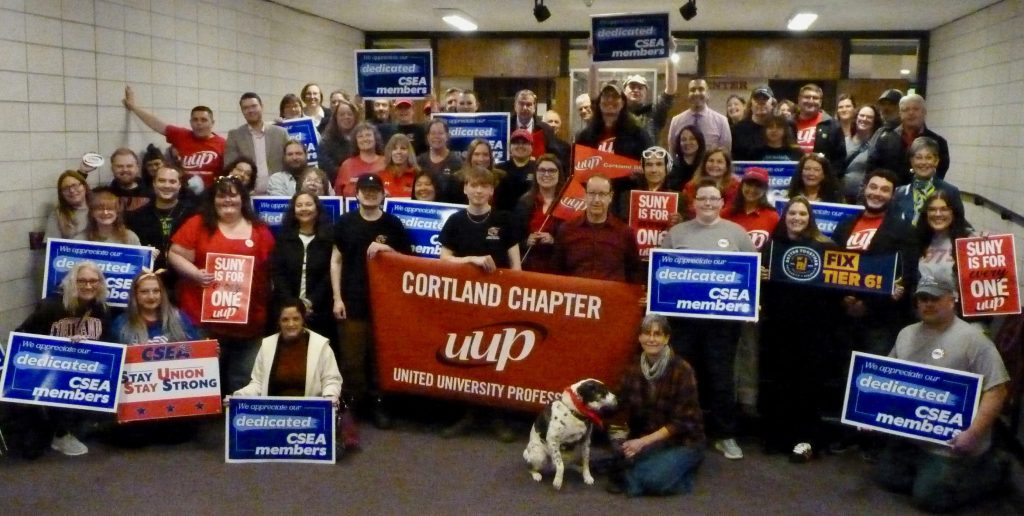
By Gregg Weatherby, Lecturer II Emeritus English Department –
Many of us have faced the prospect of dealing with plagiarism challenges or grade complaints; and increasingly, it seems, students are resorting to the academic grievance process before making any real attempts to resolve the issues informally. In my experience, students have threatened to file a formal complaint after the first email exchange—sometimes at the encouragement of other faculty members. These complaints are some of the more unpleasant duties we face as faculty. They are unpleasant because they are generally frivolous, no matter how deeply felt by the student. They are unpleasant because of the amount of extra work required to resolve the issue; and they are unpleasant because they often are allowed to degenerate into attacks by the student on the qualifications or character of the professor. I had thought that while the process was tedious, and sometimes infuriating, it was mostly benign. I have changed my mind. It is not benign. The entire process can easily become weaponized, and it can be particularly dangerous for contingent faculty members.
Often, an academic grievance is really a test of the instructor’s academic freedom–the ability of faculty to set appropriate deadlines and class policies. It may also be a test of the college’s commitment to due process— the assurance that an instructor’s deadlines and policies will not be overturned for insufficient, arbitrary, or subjective reasons not consistent with the regulations found in the College Handbook. An academic grievance also has the potential of becoming a disciplinary matter that could potentially end with negative comments becoming part of one’s work history. Sometimes, an academic grievance can be all of the above. Academic grievances deserve fair, factual, and objective reviews. To ensure that this occurs, any contingent faculty member involved in an academic grievance procedure should seek guidance from the union.
For those unfamiliar with the grievance process, a formal complaint from a student must meet the following criteria according to the Student Handbook:
350.01 ACADEMIC GRIEVANCE SYSTEM
A. For the purpose of this procedure, a grievance shall be a complaint against a faculty member or other instructor by a student of the following:
- A violation, misinterpretation or inequitable application of an academic rule, regulation, or policy of the university, school or department.
- Unfair or inequitable treatment by reason of any act or condition that is contrary to established policy or practice governing or affecting a present or former student of this university.
- Prejudiced, capricious or manifestly unjust academic evaluation.
Most students are unable to satisfy the above requirements in a written complaint, so in some cases a student may ask other faculty members to help make their cases. Some faculty members may even encourage students to file complaints against specific instructors.
The first meeting in the process is held among the department chair, the student, and the faculty member. Unable to make a coherent case, the student may make unfounded and irrelevant accusations about the instructor. These may go unchallenged by the chair—but not unnoticed. It is important to note here, that in the case of contingents, the chair has course assignment, promotion, and renewal authority. Unfounded accusations should not go unchallenged, to prevent them from becoming part of the official contemporaneous record. Although not specified in the Student Handbook, I recommend that the contingent faculty member involved should consult with the union before attending a hearing at any stage in this process because of the potential negative impacts. The union is the faculty members’ only protection.
After this hearing, the chair should write an objective report with a decision and a rationale for that decision. “Objective” should be the operative word. Sometimes these decisions contain subjective responses or irrelevant observations that will get repeated should the complaint go further, even though these may not be germane to the complaint.
There are two important points to remember at every stage of this process: There are no guarantees that the faculty member will get a fair, objective, nonbiased hearing of the facts, or that the rules found in the Student Handbook will be adhered to. In other words, there are no protections for the faculty member. This is particularly important for contingents.
If the chair’s decision is challenged by either party, it then goes to the dean. Once again, there is no guarantee that the faculty member will get a fair, objective, nonbiased hearing from the administration. Also, there is no guarantee that the administration will follow or enforce the rules as prescribed in the Student Handbook.
The Student Handbook contains very specific criteria on how the hearings should proceed at this level. The student may be accompanied by an advisor, who must be a member of the academic community. The student may not bring anyone else to the hearing. Contingent faculty should always have a witness present at these hearings and insist that the rules are followed or the hearing cancelled. Clearly, this is a dangerous position for contingent faculty. Once again, this step can be very unpleasant and may expose the faculty member to unfounded and irrelevant accusations from the administrator or the student as an attempt is made to support an often-unprovable case. These accusations could influence future decisions on the faculty member’s reappointment or advancement.
If the dean’s decision is appealed by either party, the academic grievance then goes to the frighteningly named Academic Grievance Tribunal (AGT). Composed of both faculty and students, the AGT is really the faculty member’s last resort, but not the student’s.
The AGT is also supposedly governed by the rules spelled out in the Student Handbook, but all of the warnings already given should be kept in mind: there is no guarantee that the faculty member will get a fair, objective, nonbiased hearing of the facts. There is no guarantee that the administration will follow or enforce the rules as prescribed in the Student Handbook.
The AGT will schedule and hold a hearing, and it is important that the faculty member have a witness present, preferably someone familiar with the process who can offer advice. After this hearing, the AGT issues its recommendations, which then go to the Provost for approval. This recommendation may include spurious and unfounded accusations about the faculty member that may have appeared at any previous stage of the process. It may also include what appear to be orders that violate academic freedom and due process protection, such as a suggestion that the proceeding and/or the AGT’s determination might become a part of the faculty’s “file.” At this point in the process, the student may continue to appeal; the faculty member may not– even if faculty rights have been violated during any of the previous steps or the rules flagrantly ignored.
However well-intentioned this academic grievance process may have been when it was conceived, it is a potential landmine, especially for contingents. There are insufficient protections for due process and academic freedom, and it could become a disciplinary issue. Contingents faced with this process should always consult with the union before the process begins.
Know your rights.
Know the rules.
Protect academic freedom and due process.
Call the Union.





